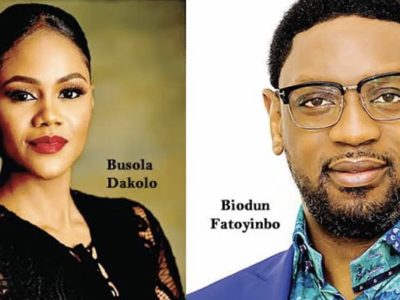What did the court really say in the rape case against the COZA pastor?
The benefit of being a member of this forum is that it gives you the opportunity to operate above the average person. As an Advocate, you should not think or react like an average person in the society. You may not have trained in Harvard or Oxford, but your exposure to DPA debates and reasoning keeps you very close.
Looking at the judgment of the court in the case which Busola Dakolo filed against Pastor Fatoyinbo, you see reactions that show you how deeply ignorant many educated people are. You need to understand that case in a way an informed observer should see it.
The court DID NOT decide that the Pastor was not guilty. The guilt or innocence of the Pastor was never before the court. Why? Because it was a civil case. Neither the police nor the Ministry of Justice (MOJ) filed a rape case against the pastor. What happened was that the lady filed a civil action for sexual assault against the pastor.
Rape is a criminal offense. Only the police or the MOJ can charge a person to Court for rape. When the MOJ or the police sue you, it is the country that is suing you. They use the awesome resources of the country to pursue you - investigate the case, bring together witnesses and prosecute you.
This case was brought by the lady herself, as a civil action. In civil suits, you must file your case within 6 years after the incident occurred, except under special circumstances when you may be allowed to bring an action after 6 years had elapsed.
Busola's case was actually in two stages. The first stage was to see if she could be allowed to bring her action after 6 years under one of the exceptions to the rule. The second stage would be whether the man did what he was accused of doing. The case did not get to that second stage. The judge held that the suit was statute barred (That is, she did not come to court early enough. So her case cannot be heard). That was what the court decided. It is wrong to assume that the court decided the second stage of the case - whether he did it or not.
Criminal cases generally do not have statutes of limitation. If the MOJ had decided to prosecute the pastor, the case would have gone straight to the second stage (evaluation on the merit) and the court would address the issue of guilt or innocence.
Let me illustrate how the statute of limitation works. Let us say that I am a man and you are a lady. Let us say that I come to your house now and find you alone at home. Let us say I pull a knife on you and rape you violently and I threaten to kill you if you tell anyone what happened. Let us say that you did not sue me until 2025 (The incident occurred on November 14, 2019 and you decide to sue me on November 15, 2025). I can actually come to court and say: "My Lord, everything she said is true. But that was more than 6 years ago and your court has no jurisdiction to hear a case that is statute barred". The judge will look at me and hate me. But he will still dismiss your case, not because I did not do it, but you waited too long to go to court. You should have sued me two days ago instead of today.
So, even if the COZA Pastor had confessed that he did it, the judgment will still be the same.
So it is not correct to read what happened in court to mean that the court found that he didn't do it.

